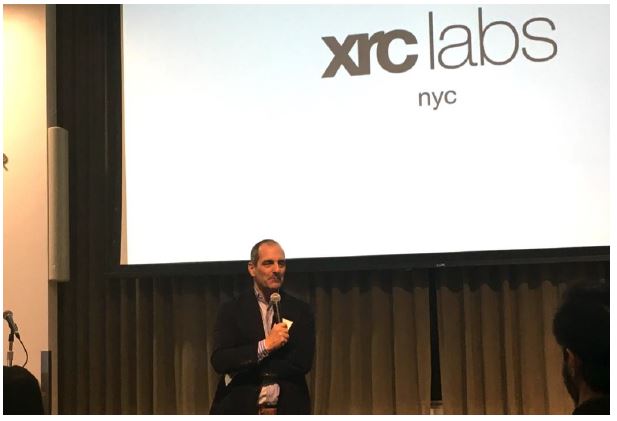
Web Developers
The XRC Labs Cohort 5 Launch event was filled to capacity and it capped off a three-day collaboration between XRC Labs and the NRF, which worked together to present the Innovation Lab at NRF 2018 Retail’s Big Show. The Innovation Lab space at the trade show featured 25 retail technology startups and was the site of panel discussions and sessions on retail technology.
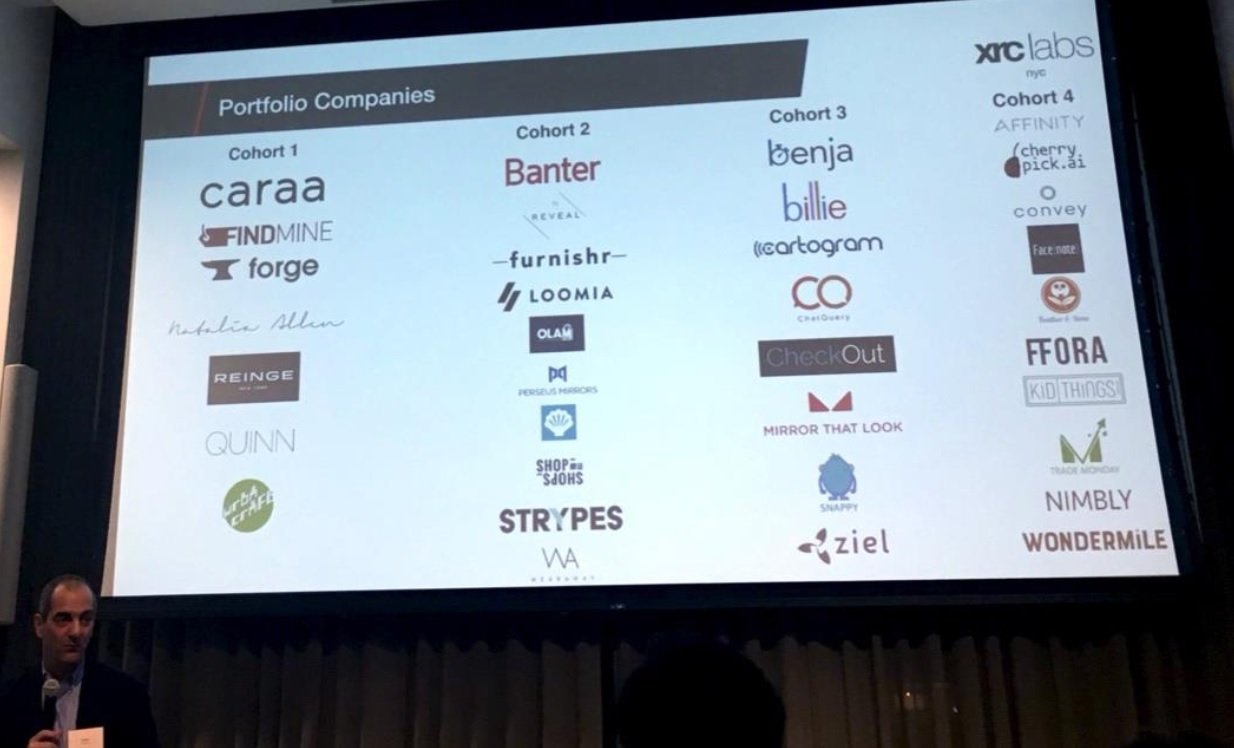
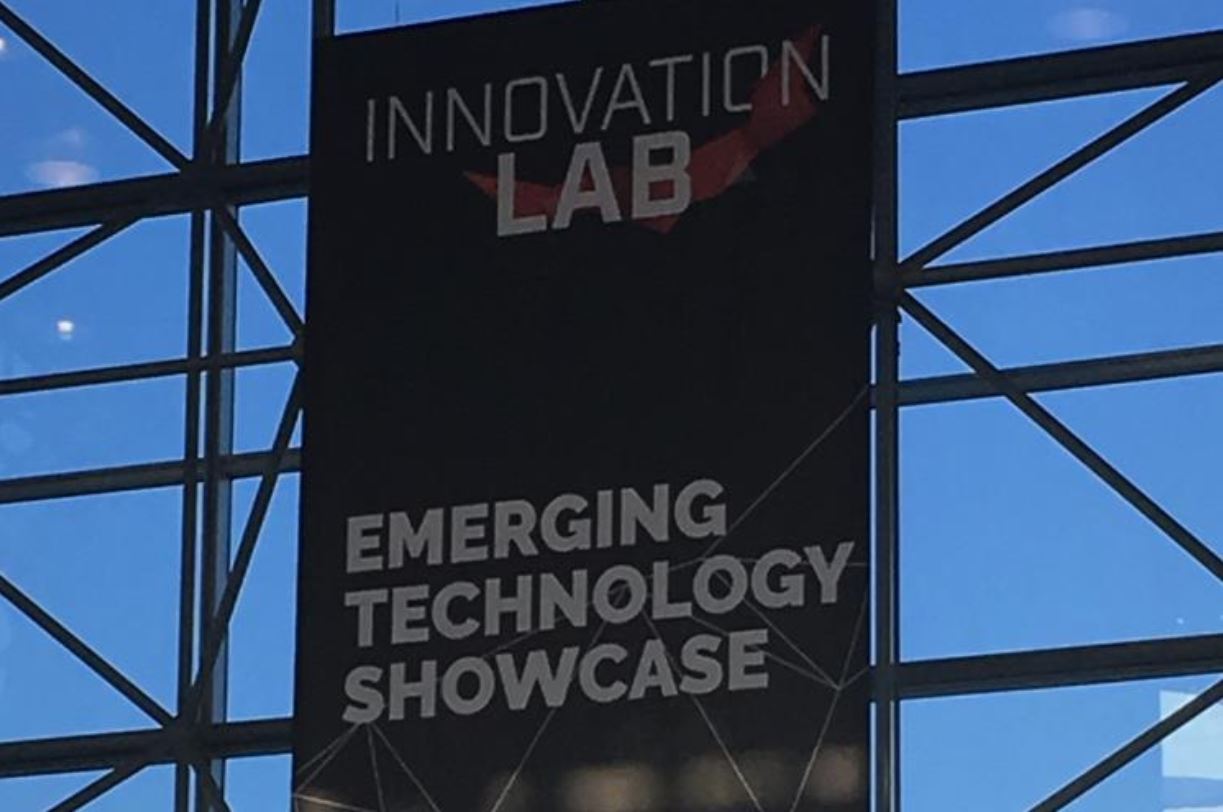
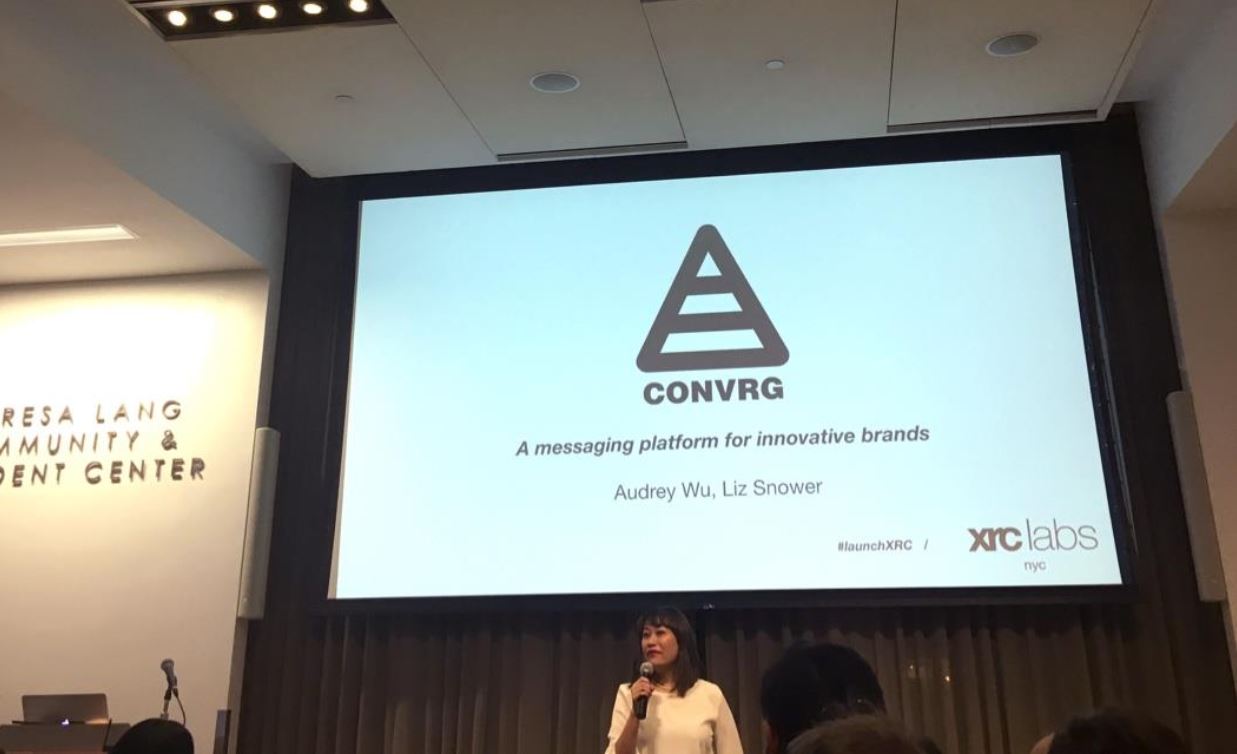
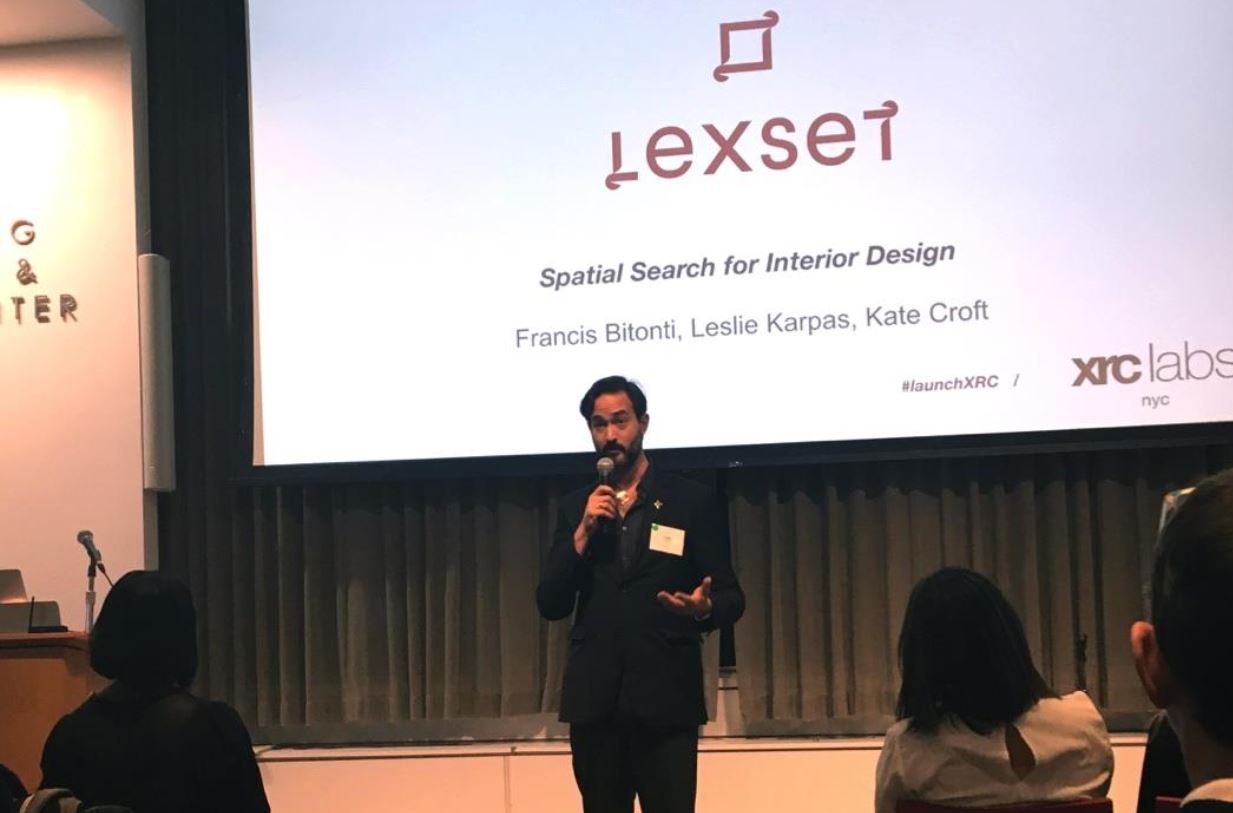
XRC Labs is evolving, and 48 companies from the first four cohorts are still in business.
Pano Anthos, Founder and Managing Director of XRC Labs, spoke about the evolution of the XRC Labs program over the past two years. More than 300 companies applied to the program in 2018 and 48 companies from the first four cohorts are still in business, he said. Anthos said that the top trends from this year’s applications included AI, manufacturing, supply chain visibility, blockchain, computer vision, self-checkout, beauty, female-focused products, augmented reality and neuro-linguistic programming.
XRC Labs continues to grow through partnerships and collaborations.
Anthos said that the XRC Labs program continues to evolve and grow through partnerships and collaborations. XRC Labs partnered with the NRF on the Innovation Lab at NRF 2018 Retail’s Big Show, which ran January 14–16. The space included an exhibit area dedicated to 25 startups and a stage where panel discussions and sessions on retail technology were held. The Innovation Lab was one of the most highly trafficked areas at the show, and almost all of the panel sessions were standing room only. Anthos moderated panels on emerging retail technologies, AI, robotics and trends in retail solutions during the conference.
The Innovation Lab banner at NRF 2018 Retail’s Big Show Source: FGRT
The store format continues to evolve and retail remains in a state of change.
Anthos said that retail store closures hit an all-time high in 2017 because retailers are slow to change. Retail innovation is slow compared with technological innovation, he said, but the industry is indeed changing. Anthos noted that stores are evolving in five key ways: they are mobilizing to serve consumers through flexible formats, offering unique experiences, operating as platforms, operating as services for consumers and operating as factories where consumers can purchase items on demand.The nine companies in XRC Labs’ fifth cohort each presented a two-minute overview of their retail technology solution at the launch event.
Carly-Ann Fergus, the new Program Director of XRC Labs, introduced the nine participating companies, which each presented a two-minute overview of their retail technology solution. Standouts included Convrg, maker of an AI-powered chatbot that aims to reduce returns through upselling, and LexSet, a B2B object recognition solution for interior design that aims to help consumers select furniture that will fit, both aesthetically and physically, into their home. A brief overview of the nine companies in the XRC Labs fifth cohort is presented below. Convrg created an AI-powered chatbot and voice experience platform that helps retailers convert returns into sales by upselling. Cofounder and CEO Audrey Wu said that more than 92% of consumers polled in a 2017 survey reported that they would purchase another product from the same retailer if the return process were simple. Convrg aims to build conversational experiences through brands’ and retailers’ websites, messaging apps, and voice assistants to help consumers through the return process with personalized upselling, with the end goal of increasing the retailer’s revenue.
Audrey Wu, Cofounder and CEO, Convrg Source: FGRT
Field-Test is a platform that aims to bridge the offline and online worlds by empowering shoppers to see and save purchases they discover in-store to a virtual wish list without the use of an app. CEO and Founder Melissa Gonzales described Field-Test as “the shortest and friendliest route to purchase a product.” Gonzalez said that the company has developed an intelligent shopping and checkout solution that allows consumers to transition through shopping channels without needing to download any apps. With its partner, mall owner GGP, the company went live last fall. It has provided its solution to 15 retail brands so far. Hemster integrates basic hemming services into the sales process at brick-and-mortar clothing stores by providing consumers with self-fitting kits. Founder and CEO Allison Lee said that traditional small, medium and large sizes do not fit most consumers, so the company’s goal is to customize the shopping experience based on the shopper’s fit. Hemster is partnering with major mall owners, including Simon Property Group, Westfield and Macerich. KiraKira3D is a mobile 3D design community that is targeted to Gen Z women. Founder and CEO Suz Somersall described KiraKira3D as a “virtual Etsy” that helps turn consumers into designers. The company provides tools for girls and women who do not have engineering backgrounds or access to software that enables them to design, share and 3D print creations. KiraKira3D is partnering with HP and Autodesk. LexSet is an integrated B2B solution that provides AI-powered object recognition, spatial search, product assembly assistance and automated surface tiling for online furniture and home supply consumers. Founder and CEO Leslie Karpas said that LexSet is out to democratize interior design by giving consumers confidence in their decision-making process. He said that LexSet differs from other available solutions in that it uses AI to interpret, in 3D, the space of a consumer’s house, and then makes furniture recommendations based on the items that are best suited for that space. The company holds 38 patents.